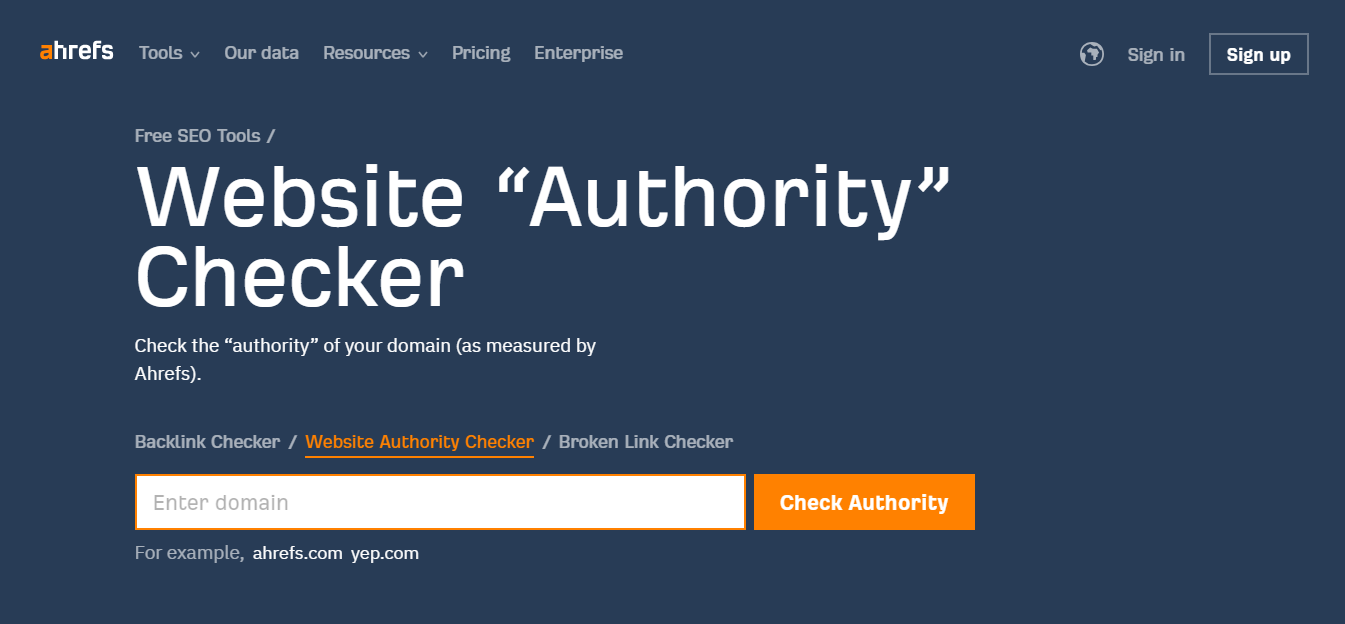How Does Link-Building Strategy Work For SEO?

Links are still a big deal when it comes to how Google and other search engines decide which websites should rank higher.
Think of it this way: search engines use links to find new stuff on the internet, and they also use them to decide if a webpage is good or not.
So, when you have good links pointing to your website, it’s like getting a thumbs-up or a seal of approval. Google likes it when your links look healthy.
But here’s the catch: Google has gotten smart at spotting shady link tactics. It can tell which links are useful for users and which ones are just tricks.
This means that old-school link strategies, like leaving spammy comments, creating Private Blog Networks (PBNs), or hanging out in forums for links, don’t work as well as they used to.
In this article, we’ll discuss what works and what doesn’t. We’ll also discuss the best link-building strategies for SEO which bring results.
What Is Link-Building For SEO?

Link building in SEO is like networking for websites.
It’s the process of getting other websites to link to your site, and it’s a crucial strategy to boost your site’s visibility in search engines like Google. Think of each link as a vote of confidence in your website’s quality and relevance.
For example, let’s say you run a blog about healthy recipes. A well-known nutrition website links to one of your articles about the benefits of a Mediterranean diet. This is like a reputable chef endorsing your cooking skills. When Google sees this link, it thinks, “Hey, this blog must have valuable content about healthy eating!”
As a result, your blog might appear higher in search results when someone looks for healthy recipes.
However, not all links are created equal.
Quality matters more than quantity

Quality over quantity is a golden rule in link-building for SEO, and here’s why it’s so important: Google values the relevance and authority of the websites that link to yours more than the sheer number of links. Let’s dive into the details to understand this crucial aspect of SEO.
Getting links from authoritative, trustworthy websites is like receiving gold stars, while links from sketchy, irrelevant sites can hurt your SEO. So, link-building involves outreach, content creation, and relationship-building to secure those valuable connections. It’s about proving to search engines that your website is a reliable source worth promoting.
- Relevance Matters: Google looks at the context of the linking website. If you have a fitness blog, a link from a renowned health website carries more weight than a link from a tech blog. The reason is simple – a link from a related, or “relevant,” source implies that your content is trustworthy in that specific field. Google wants to ensure that when a user clicks on a link, they find content that matches their intent.
- Authority and Trustworthiness: Google assigns authority and trustworthiness to websites based on their link profiles. If a highly authoritative website links to your page, it’s like a vote of confidence. It’s as if a respected expert is vouching for your content. Google pays more attention to these votes and boosts your rankings accordingly.
- Link Placement: The location of the link on a webpage also matters. Links in the main content of a page are typically more valuable than links hidden in the footer or sidebar. Google’s algorithms are smart enough to discern between these placements.
- Diverse Link Sources: It’s not just about getting links; it’s about getting them from diverse sources. A dozen links from one website are not as impactful as one link from twelve different reputable websites. Google wants to see that your content is valued by various web communities.
- Natural Linking Patterns: A sudden influx of hundreds of links in a short time can trigger Google’s spam detectors. It might think you’re buying links or using black-hat techniques. A natural, gradual link-building process is what Google prefers.
- Content Quality: The quality of your content is closely tied to link quality. High-quality content attracts organic, authoritative links because others find it valuable.
In essence, Google’s goal is to provide users with the best search results. Quality links help it determine which websites offer the most reliable, useful, and relevant information. When you focus on quality in your link-building strategy, you’re essentially aligning with Google’s mission.
So, when you’re building links, remember that it’s not about getting as many links as possible.
It’s about securing meaningful, relevant, and authoritative links that genuinely enhance your website’s reputation and usefulness in the eyes of both Google and your site’s visitors.
How To Get Quality Links?
Before we get into the nitty-gritty of building links one step at a time, let’s first understand what separates a good link from a bad one. This knowledge will help you direct your efforts towards creating links that genuinely boost your Google ranking.
So, without further ado, here’s how you can figure out which links are truly worth your time and effort, by knowing about the site authority and relevancy.
Site Authority Is Helpful For Link-Building
The quality of a link is also judged by how important the whole website is.
A link from a big-shot site like NYTimes.com is way more powerful than a link from some unknown blogger’s site. Now, these big-league links can be hard to score, but they’re worth the hustle.
There are many tools like Ahrefs, SEMRush, Moz, etc. where you can check your website’s domain authority. Just enter your domain in the search bar of the tool and it’ll run it across its system to check your site authority.

Ahrefs Domain Authority Checker
If you’d like to know what domain authority (DA) is and how it works, go through our comprehensive DA guide.
When it comes to links, two things count: how important the website linking to you is and how closely it relates to your website.
Imagine you have a website all about The Paleo Diet, and you get a link from a really important website. Sounds great, right? But here’s the catch: if that important website is all about unicycles, it might not help you much.
So, the key is to aim for links from important websites, especially if those important websites are all about the same stuff as your website.
The 4 Ways To Get Links

In simple terms, when it comes to building links for your website, most strategies can be put into four categories:
1. Placing Links: This is when you visit a website and put your link there yourself.
2. Requesting Links or Acquiring Backlinks: You reach out to the owners of other websites that are related to your content and ask them if they’d kindly link to your site.
3. Purchasing Links: Similar to asking, but you offer money or something valuable in exchange for them adding a link to your site.
4. Earning Links: This is when you create something so awesome or interesting that people naturally want to link to it because they find it valuable.
You can also get an expert link builder or a link-building agency to handle all this for you. Many digital marketers and business owners end up going this route because, no matter which strategies you pick, link building is pretty darn labor-intensive.
However, even if you choose to delegate this task, it’s super beneficial to grasp the basics of how it’s done. That way, you can tell if the person you’ve brought on board is doing a solid job or not.
How Placing Links Works For Link-Building
We’re talking about hyperlinks here, like how the word hyperlink itself has been hyperlinked.
But how does placing links work for link-building? And how can you place links within your blog content or in landing pages (although the latter isn’t a popular practice)?
There are some common tactics for building links like creating profiles on social media, adding your business to directories, listing on review sites, and participating in forums and Q&A sites. The thing is, these methods are easy to use, but Google doesn’t value these links much.
They don’t give you a big advantage because if you can put your link on a website, your competitors can too. But here’s the catch – these tactics aren’t completely useless.
Some pros start with them when they’re working on a brand-new website. They call these links “foundational links.”
Think about it: Most online businesses have social media profiles, show up in business directories, and get reviewed on places like Yelp or Trustpilot. All of these pages have links to their website. So, it’s a basic step to get your online presence going.
Link-Building by Acquiring Backlinks
When you reach out to other website owners and ask them for a link, which SEOs often call “link outreach.”
You can’t just ask any site, especially those unrelated, to link to your content. You need to target websites related to your topic. They’re more likely to consider your request.
Creating a list of these relevant websites for outreach is called “link prospecting.” The more effort you invest in finding suitable targets, the better your success rate.
Why would other site owners link to your page?
Ideally, your content should impress them enough that they naturally want to share it with their visitors. However, not every page on your site is a link magnet. So SEO pros use tactics to persuade other site owners to add links. These tactics make your content more appealing.
What are these tactics?
- Guest Posting: You write an amazing article for someone else’s website and include a link back to your site. It’s like making a good impression at a friend’s party.
- Skyscraper Technique: You find a webpage that lots of websites are linking to, but it’s not that great. So, you create a much better one on your website and then let those linking websites know about your awesome new page. It’s like showing people your upgraded, cooler version of something they already like.
- Resource Page Link Building: You discover webpages that list resources similar to what you offer and ask to be added there. It’s like getting your business card on the bulletin board at a community center.
- Broken Link Building: You find a webpage with lots of links that don’t work anymore. You create a replacement on your site and let the people who linked to the broken page know about your working alternative. It’s like helping out when something’s broken and offering a better solution.
- Image Link Building: You find websites using your images without giving you credit and ask them to link back to your site. It’s like reminding someone to give you credit when they use your photos.
- Unlinked Mentions: You ask for a brand mention to be turned into a clickable link. It’s like making sure that when someone talks about you, they also give people an easy way to find you.
- PR: You give them a really exciting story for their coverage. It’s like giving journalists a juicy scoop they can’t resist. The Fixbracket marketing blog does exactly this, as we write content promoting your product, service, or blog, and barter for a backlink in return.
These are all strategies to get more websites to link to yours, which can help improve your website’s visibility and reputation on the internet.
Should you even buy backlinks?
The easiest way to get other websites to link to yours is by paying them to do it.
Some website owners might agree to link to your site in exchange for money. But here’s the catch: this can get you into hot water with Google. Google sees this as trying to trick its system. If it catches you, it might remove your website from search results.
There’s another problem with buying links – you might spend your money on links that don’t actually help your website at all.
But, it’s important to know that some folks in the SEO world do buy links to boost their rankings. When you start checking out your competitors’ backlinks and reach out to the same websites, you might discover if they’ve paid for their links. Just remember, we’re all about keeping things ethical and safe here, so be cautious when it comes to link-building tactics.




